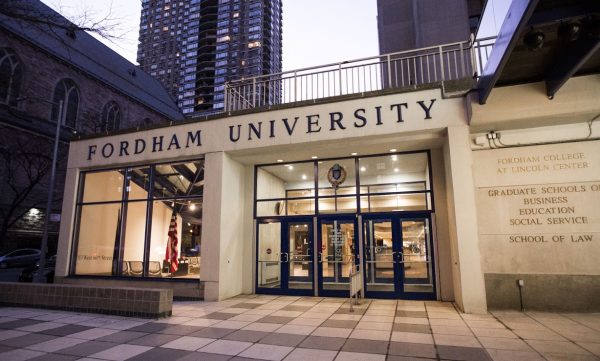Students Question Fordham’s Role in Education Affordability
March 10, 2017
In his first proposal of the 2017 State of the State, Governor Andrew Cuomo announced the groundbreaking Excelsior Scholarship—an initiative which would effectively grant free college tuition at all SUNY and CUNY two-and four-year colleges to New Yorkers making up to $125,000 per year. This first-in-the-nation program has now revitalized fervorous debates over the cost and right to education in the United States across college campuses—including Fordham University.
It is a common fear of students and parents alike: are the innumerable college debts one accumulates in the face of a struggling workforce ultimately worth the cost of higher education? This initiative, Governor Cuomo hopes, will alleviate that fear, and affirm college education as “not a luxury – but an absolute necessity for any chance at economic mobility.” While the proposal acts as a remarkable step forward towards education equality, it now leaves university administrators with their own concerns: for example, how might a college incentivize families to invest in a university education, without offering anything beyond the “benefits” (i.e. a college degree) which are already on the table?
This is the debate which has arrived at Fordham—and it is a labyrinthine and implacable debate, at that. Though Fordham University will not be affected by Governor Cuomo’s initiative, it has no less caused unrest among some of the student body. Questions have risen over the university’s touting of Jesuit values—those of inclusivity, universality, and compassion—while flippantly forcing students into oftentimes crushing debts.
In particular, a number of minority students feel that the university attracts low-income students with its history of accepting both immigrants and those from financially struggling households, only to then attach a near $70,000 per year price tag (which includes tuition and room and board, among other expenses) to dreams of an education and upward economic mobility.
Because Fordham is a private institution, its tuition is subject to change. Emily Sitner, Fordham College at Lincoln Center (FCLC) ’17, explained, “To compensate, Fordham does offer a lot of financial aid, without which many students definitely would not be able to afford to attend.” She added, “That being said, I do think Fordham could do more with the money it receives both from the tuition of students and from donors.”
At Rose Hill, it is a starker picture: students there, particularly those who are minorities, or are involved in ROTC or athletics, have a perspective that mirrors the surrounding area of the Bronx. On the Rose Hill campus, phrases such as “diversity outreach” and “economic accessibility” add to the sting of the university’s hefty tuition cost, and fuel a resentment predominantly felt by low-income or minority students: that the school only desires a low-income or minority student for the appearance of “diversity,” while never taking the appropriate measures to help those students feel financially secure.
Others, however, feel differently. Tommy Tsang, Fordham College at Rose Hill (FCRH) ’18, is an aspiring teacher and current site director for Fordham’s “Let’s Get Ready” program, which offers free SAT coaching and college search services to underprivileged students. Tsang believes that his experiences as a student at Fordham and a first-generation college student have been profound. “I am extremely grateful for all the counseling that Fordham’s administrators and staff have provided me in helping make my college experience both accessible and rewarding,” Tsang explained. “Often, I feel that underprivileged students need a support system of mentors or role models they can turn to for advice and questions. I wish all first-generation, underprivileged students could experience this same equal access to education and support at their own universities.”
Having programs like “Let’s Get Ready” at Fordham undoubtedly aids in the university’s hope to combat educational inequalities at their own school, as well as throughout New York. While students have had wonderful experiences with Fordham administrators in their quest for higher education, the university still shows a lack of understanding towards underprivileged students. If Fordham wants to better cultivate an environment which benefits all students, despite their economic standing, it might serve administrators well to return to the Jesuit values of inclusivity and compassion which bring so many of us here in the first place.










